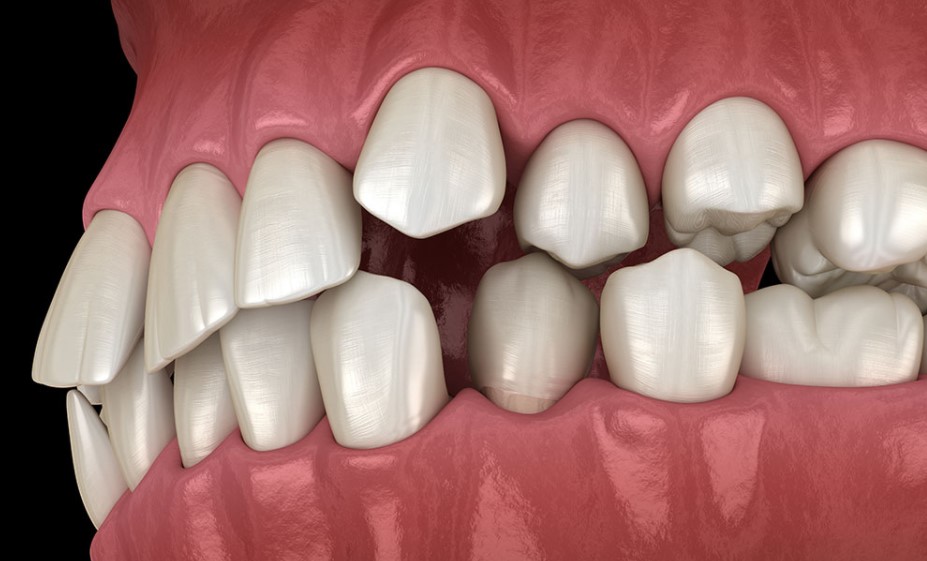The pain and discomfort caused by temporomandibular joint disorder (TMJ) can be quite disheartening, if not debilitating. Since the jaw joint is one of the most utilized joints in the body, any abnormality in the area can significantly affect one’s daily life. But how long will the pain and discomfort last?
How long does TMJ last?
Unfortunately, there is no telling how long TMJ flare-ups last. Since it can vary from one case to another, and severity differs based on its cause and the extent of damage in the jaw joint, there is no definite answer on how long the pain can last. Painful flare-ups could last for hours to a couple of days.
For many cases (mild to moderate cases), the pain is temporary and may be managed with hot or cold compress, massages, and over-the-counter pain medications. For more severe cases, the pain can last for weeks and require medical intervention. Untreated cases could also develop into chronic pain.
The tricky thing about TMJ disorder also is that pain and discomfort in the area is not enough to diagnose and pinpoint an underlying condition. While you can always seek treatment and quick remedies, in some cases, doctors may recommend waiting it out to understand the condition and its timeline. This is vital to identify the causes and symptoms for the proper treatment.
Why do you get TMJ pain?
As with most joints in the body, the jaw joint is complex; it is made up of connecting bones, tissues, muscles, ligaments, etc. And like other problems with joints, there could be several causes for TMJ pain.
Here’s a quick breakdown of the common causes of TMJ and how long you can expect for the flare-ups to last:
Teeth Misalignment (malocclusion)
The pain could be caused by a pre-existing condition like bite problems. This issue could come and go and last for the better part of one’s life, unless properly addressed.
Your upper and lower teeth should touch evenly when your mouth is closed. If they are misaligned (malocclusion), say you have an underbite or overbite, then you are prone to developing TMJ disorder. In this case, you will need an occlusal adjustment to correct the alignment of the teeth before the pain can completely go away.
Bad oral habit (teeth grinding and/or jaw clenching)
Jaw clenching and teeth grinding, or better known as bruxism, is one of the most common causes of TMJ. The good thing about this however is that it is fairly easy to address and there are many ways to mitigate this bad habit. Among the treatment options are wearing custom mouth guards at night. Until this bad habit is resolved, the pain is likely to continue.
It could be caused by a bad oral habit that causes too much stress and wear and tear for the joint, such as chewing gum for a long period of time, or eating hard and chewy food. Resting the mouth from chewing too much can speed up the healing process.
Certain Medications
Speaking of bruxism, medications for anxiety, depression and ADHD are known to increase the likelihood of teeth clenching, which worsens the TMJ. However, it is important to talk to your doctor first before you stop taking these medications. Many have successfully addressed their TMJ without sacrificing their medication.
Injury
The pain could also be a sudden onset caused by trauma from an injury. If you experience pain on your jaw after an incident or injury that affects your head and face, then it is most likely the culprit. Fortunately, they eventually go away over time as you heal from your injury.
Arthritis
Aging is also a contributory factor that can lead to the deterioration of the jaw joint. As with other joints in the body, the jaw joint is at risk of developing arthritis, especially with age. Massage, relaxation techniques can help alleviate the pain and discomfort. Over-the-counter pain medications and non-steroidal anti-inflammatory drugs (NSADs) such as ibuprofen can also help in reducing swelling and soreness.
Other contributory factors of flare-ups include:
- Bad posture
- Dehydration
- Stress
- Vitamin deficiency
- Hormone fluctuations
Since the cause differs from one person to another, the duration of flare-ups could also differ. Also, not every cause could be treated. In most cases, however, the disorder and its painful symptoms can be managed.
Does TMJ go away on its own?
Yes. In most cases, TMJ pain is mild to moderate, and goes away on its own. Simple home remedies and self-care practices like rest, hot and cold compress, and jaw exercises can also help alleviate the symptoms and speed up the healing process. For proper diagnosis and conservative treatment, visit your dentist.
Is TMJ disorder permanent?
No. TMJ and its symptoms can be really frustrating, but fortunately, it is not irreversible.
The majority of TMJ pain is caused by jaw clenching and teeth grinding. Thus, avoiding this bad habit can significantly help in managing and treating the condition. Your doctor can help you develop the best course of treatment.
How long does a TMJ flare up last?
Depending on the cause of the problem and the severity of the damage in the jaw joint, TMJ flare ups can last from a couple of days to a few weeks. Facial massage and exercises and reducing anxiety and stress can reduce recovery time.
Without proper care and treatment, flare-ups can last longer and may develop into a chronic condition.
Can flare-ups be managed?
Yes, absolutely. This will require proper diagnosis and the right care and treatment plan.
The best way to manage the pain is to speak to your dentist.
Does temporomandibular disorder go away?
Yes. Since most cases of temporomandibular disorder are mild, they do not last long. They may come and go without getting worse, and the jaw joint can heal on its own without a doctor’s care. There are cases wherein they can last long and symptoms can get severe, which could definitely affect speaking, eating, and swallowing.
TMJ disorder is highly treatable. If you are experiencing pain in your jaw joint, headaches, or ear aches, talk to your dentist or physician to get the right diagnosis and treatment.


























